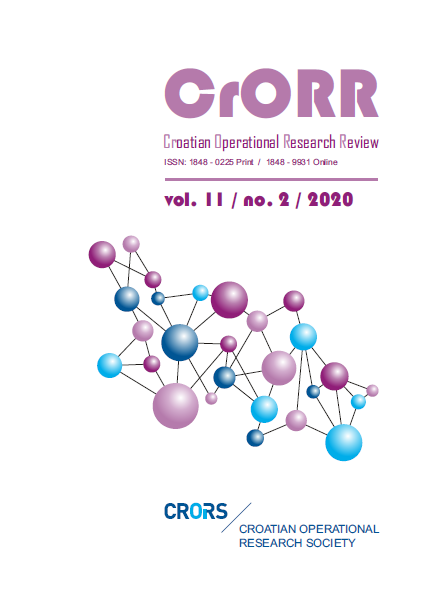Transshipment model considering environmental cost using mixed integer linear programming: Beef distribution problem
Abstract
The operational research paper in the transportation model nowadays is heading to the environmental issue. One of the famous operational research models is transshipment. Transshipment is an expanded model of transportation, in each distribution center between the start to the destination point. In this research, the transshipment model is integrated into an environmental function. The challenge is to find the right shipment of each route from the start, distribution, and destination point considering the transportation cost and carbon emission. This research proposed a transshipment model by minimizing transportation and carbon emission cost using mixed-integer linear programming for model formulation. The solution searching used branch and bound method. This research analyzed the environmental objective function and constrain effect in the transshipment model. The model was tested in a beef distribution case study in Bogor, Indonesia that has eight source points, three distribution centers, and six destination points. The model was experimented using carbon emission limitation scenarios. The optimum result in source allocation, distribution and destination were different between the two scenarios. The carbon emission limitation affected carbon emission production and total cost.
Downloads
Published
Issue
Section
License
- Authors retain copyright and grant the journal right of first publication with the work simultaneously licensed under a Creative Commons Attribution License that allows others to share the work with an acknowledgement of the work's authorship and initial publication in this journal
- Authors are able to enter into separate, additional contractual arrangements for the non-exclusive distribution of the journal's published version of the work (e.g., post it to an institutional repository or publish it in a book), with an acknowledgement of its initial publication in this journal.
- Authors are permitted and encouraged to post their work online (e.g., in institutional repositories or on their website) prior to and during the submission process, as it can lead to productive exchanges, as well as earlier and greater citation of published work (See The Effect of Open Access).


